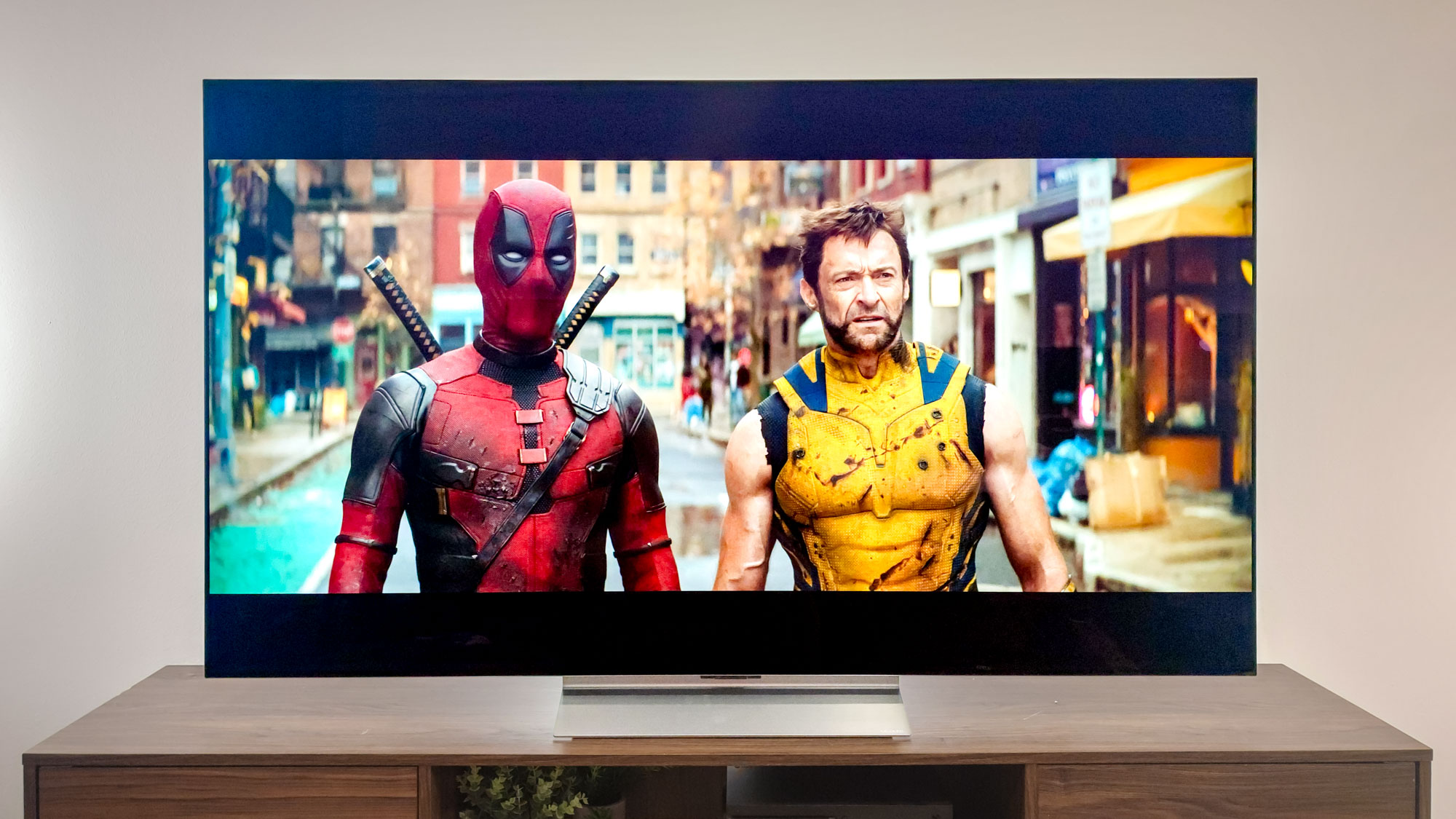WhatsApp users are fleeing — here are the best alternatives
WhatsApp users move to Facebook-free apps in wake of new privacy policy
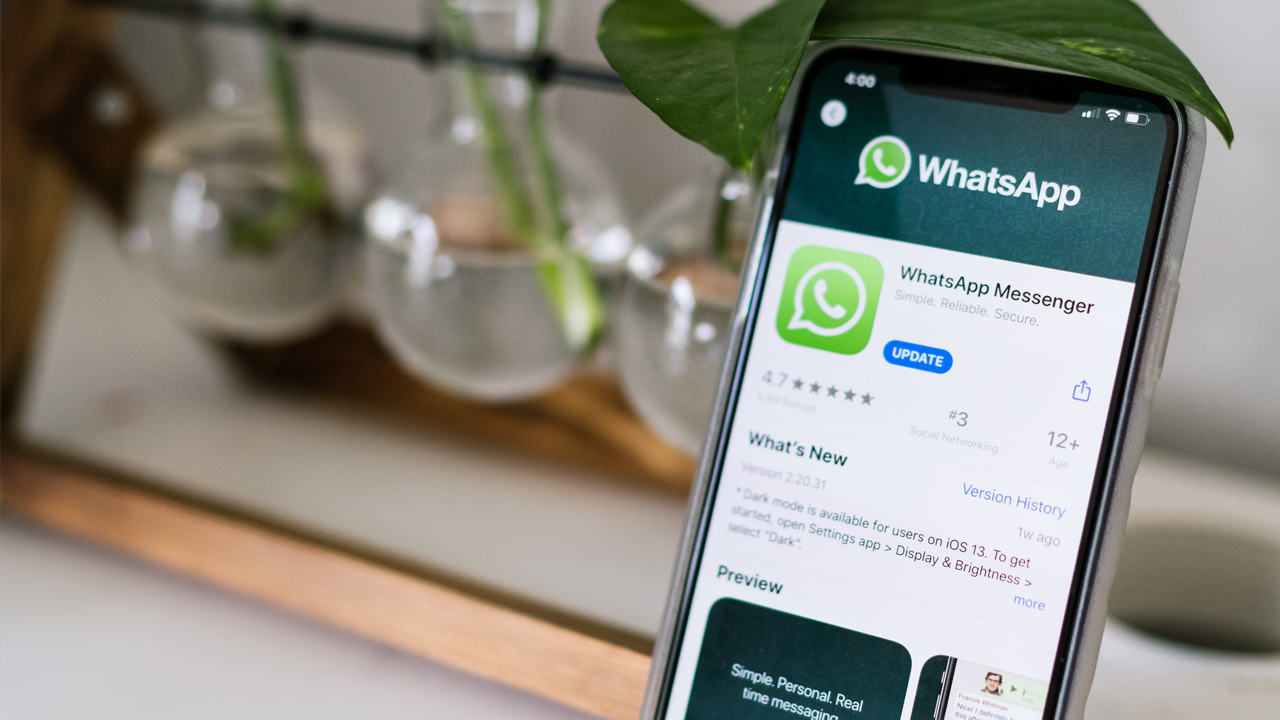
Last week, news hit the web that WhatsApp was changing its privacy policy and forcing users to share private information with its parent company Facebook. As you can imagine, that prospect has gone down like an explosion of flatulence in an elevator.
Since then, millions of users have been ditching WhatsApp in favor of another of the best encrypted messaging apps, forcing the company to publish a new FAQ to clarify exactly what its new data-sharing policies actually mean.
- These are the best encrypted messaging apps you can download now
- How to make video calls on Signal
- How to delete apps on Android
The gist of the issue is that when WhatsApp was sold to Facebook in 2014, a pledge was made that WhatsApp's famous user privacy policies would remain. That changed in 2016 when WhatsApp started sharing user data with Facebook, though it let users opt out at the time.
Word was that as of Feb. 8 data sharing with Facebook was going to change, and users wouldn't have a say in what happened. WhatsApp has released statemenets refuting this, insisting nothing is changing, but it's still got people riled up.
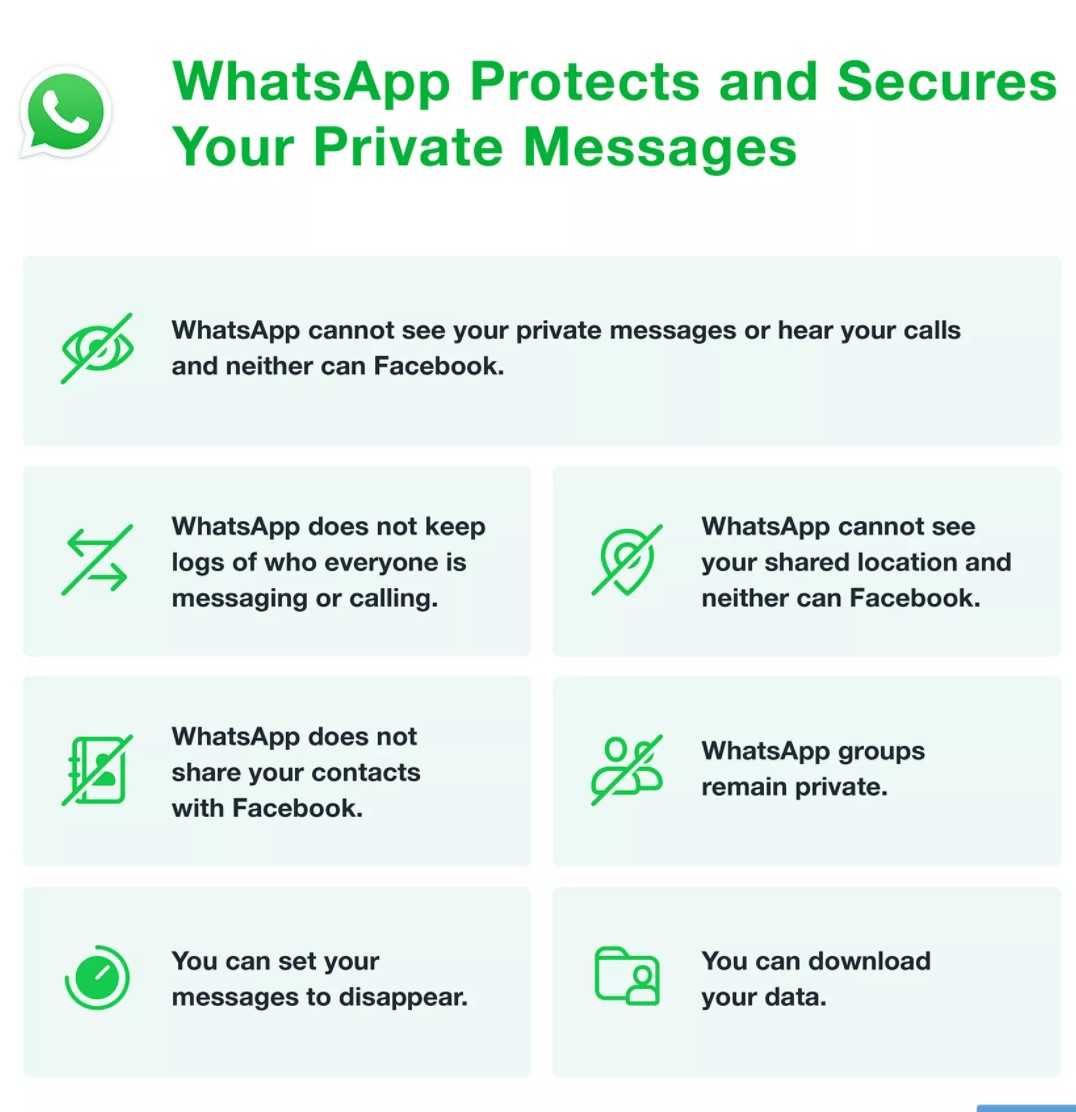
WhatsApp has since been downplaying how much data was actually shared with Facebook in the first place, promising that contacts, location data, logs and the contents of messages are remaining private.
Instead, said the FAQ, the changes are supposed to reflect how you message businesses on WhatsApp, assuming you do, and is meant to make data collection and usage more transparent.
Various Facebook executives have been taking to Twitter to try and set the record straight, but it seems that people have already made up their minds.
Sign up to get the BEST of Tom's Guide direct to your inbox.
Get instant access to breaking news, the hottest reviews, great deals and helpful tips.
This isn’t surprising considering Facebook’s horrendous track record with user privacy, as well as the frightening privacy labels popping up about Facebook-owned apps now that Apple has mandated those labels in the App Store.
I've been watching a bunch of discussion this week about the privacy policy update we’re in the process of making @WhatsApp and wanted to share some thoughts.Thread 👇January 8, 2021
So a lot of people are jumping ship. According to analytics firm Sensor Tower (via BBC News) encrypted messaging app Signal rose from 246,000 downloads the week before WhatsApp’s announcement to 8.8 million afterwards.
Signal was also endorsed on Twitter by Elon Musk last week and has since risen to the top of the app store charts on both Android and iOS devices.
Similarly, Telegram, which also offers encrypted messaging and total user privacy, gained an additional 25 million users in the 72 hours before Jan. 12. It’s sitting in second place in the app stores, behind Signal.
Best WhatsApp alternatives
If you’re not convinced by WhatsApp’s attempts to clarify the situation and want to switch to something that doesn’t seem to collect data on you, here are some of the best options available.
Signal
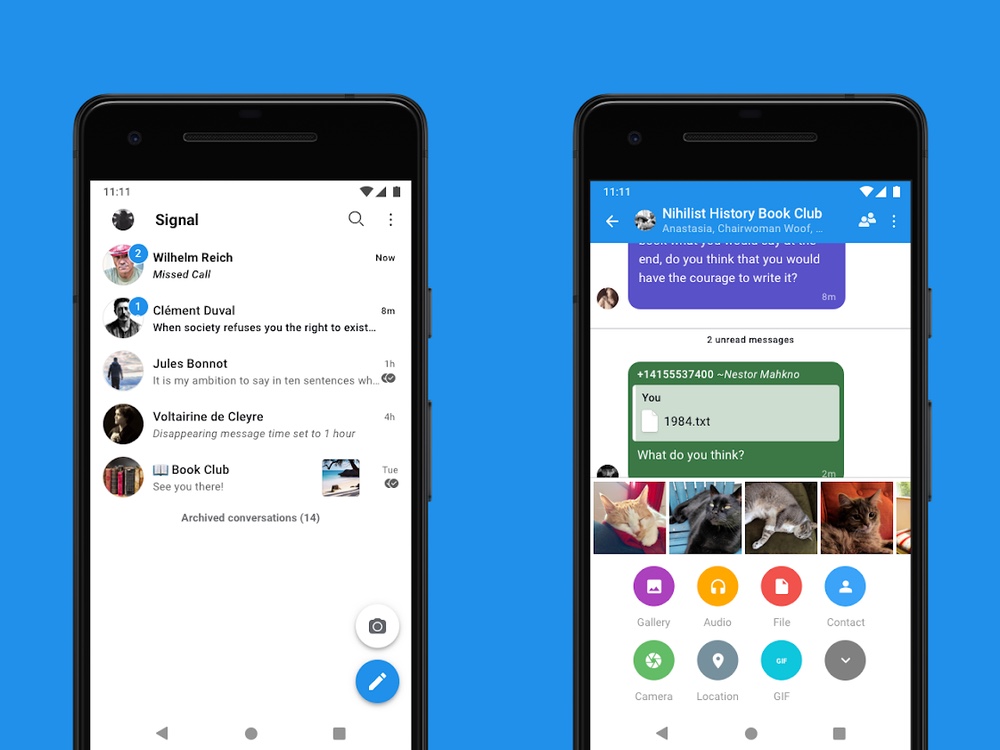
Signal is one of the most obvious choices for the more privacy and security conscious. The messaging service has endorsements from the likes of Elon Musk and Edward Snowden — with the latter crediting its security conscious approach for him still being alive.
Not only is Signal completely free, it also supports text messaging and voice, video and group calling. Messages can be set to self-destruct, and you can use a Chrome browser plugin if you’d rather send your messages from a desktop machine instead.
Signal's open-source end-to-end encryption protocol is also used by WhatsApp, so you'll be getting WhatsApp's security without Facebook's involvement.
The Signal app regularly conducts security audits on its software and manages to combine that security with a user-friendly interface that even your technophobic uncle could manage.
Signal is owned and operated by a non-profit foundation headed by cryptography expert and self-described anarchist Moxie Marlinspike and WhatsApp co-founder Brian Acton, who famously left Facebook in 2017 after a public dispute over the future of WhatsApp.
Telegram
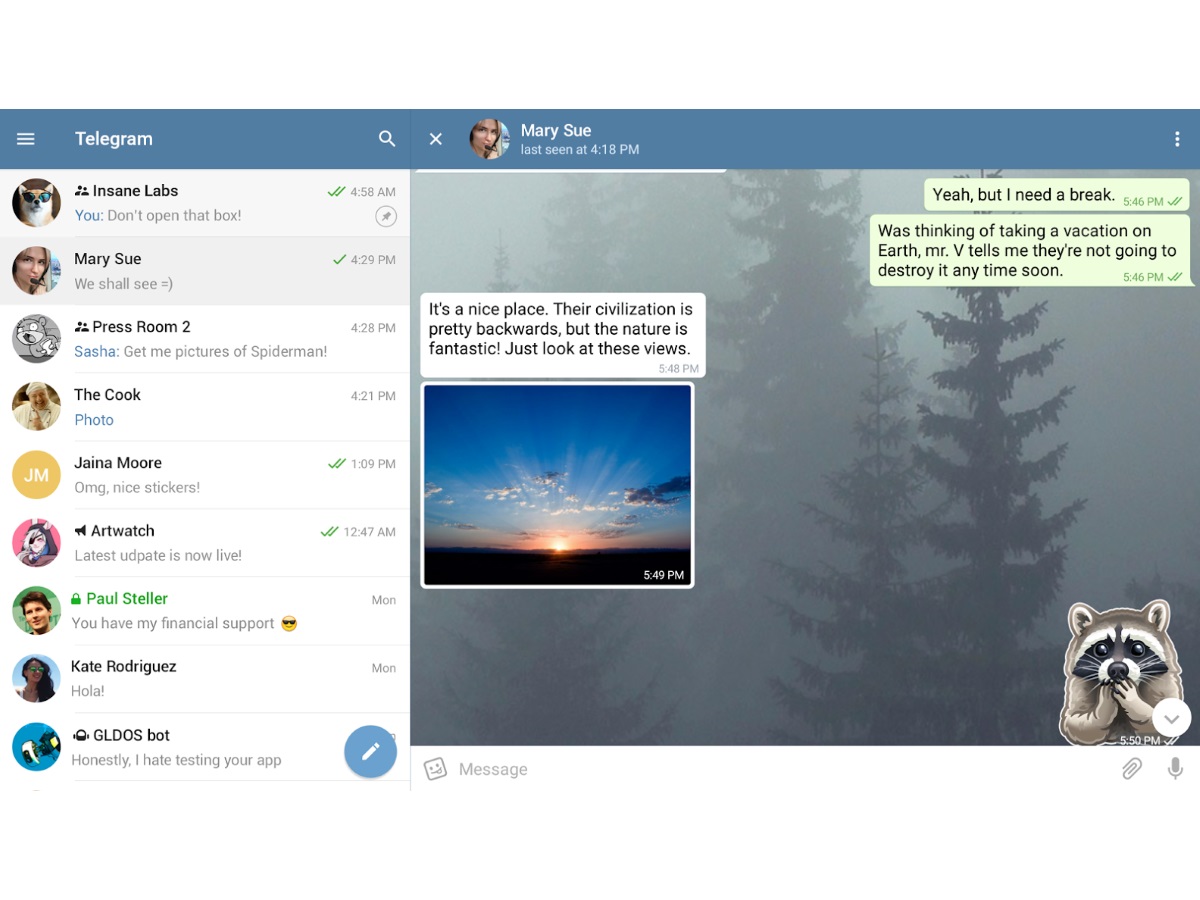
If you’d rather have something similar to WhatsApp and linked to your phone number, Telegram is one option for you. That said, experts have pointed out that Telegram's services aren’t that secure, and its end-to-end encryption is not set up by default. So that’s worth bearing in mind.
That said, Telegram still offers the option to share files, set messages to self-destruct, and chat in groups of up to 200,000 users. It can also sync messages across all your devices, and costs absolutely nothing to use.
Download Telegram: Android, iOS
iMessage
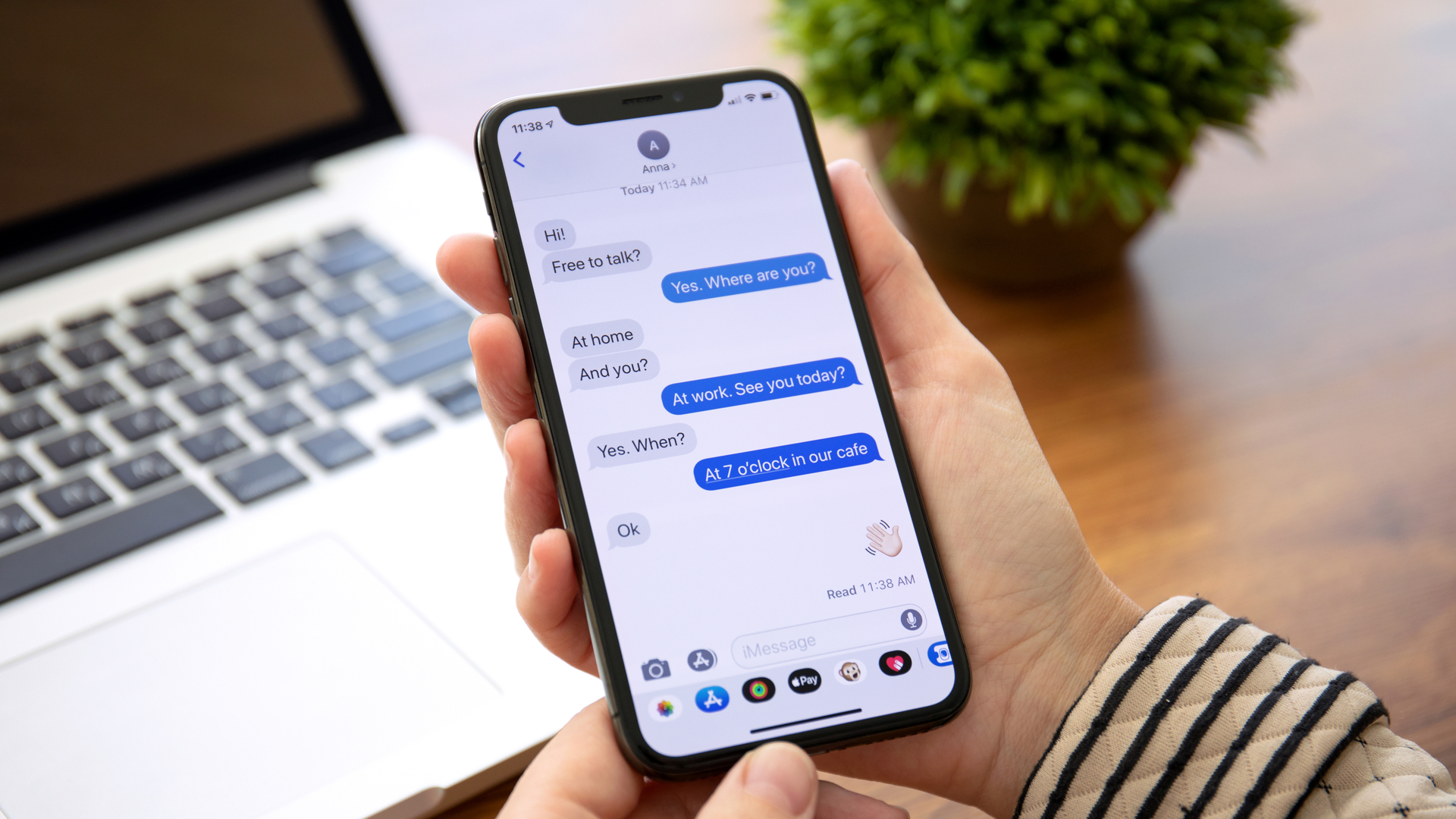
If you’re an iPhone or Mac user, then the simplest option is sometimes the best, and iMessage is the ideal alternative to WhatsApp.
Not only can you send messaging to all phone numbers, whether they use iMessage or not, but Apple has a proven track record of not bending to demands by governments that it add backdoors to its encryption. So your messages stay safe (unless someone can read your iCloud backups).
iMessage is just as fully-featured as other popular messaging apps, with support for images, GIFs, video and group calls. In some countries iMessage users can even send each other money using Apple Pay.
Video and voice calling is not included in iMessage, and you’ll have to do that in the FaceTime app instead -- and FaceTime works only with Apple devices. Why iMessage and FaceTime haven’t been blended into one single communications app isn’t clear, but that’s the way it is. At least it’s already installed on all iPhones and most Macs.
Google Messages
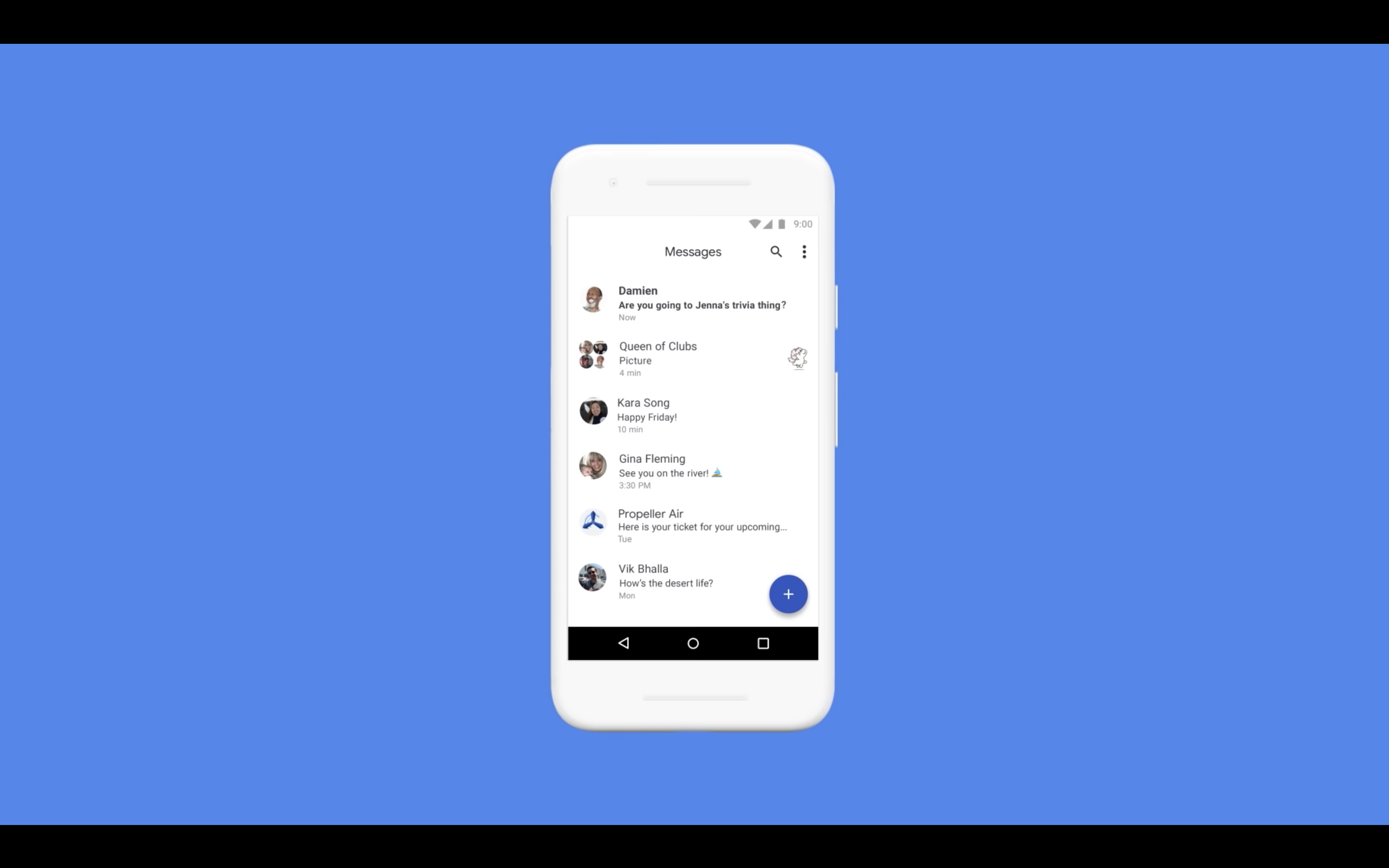
Google Messages is Google’s answer to iMessage, and it's available to all Android users via Google Play and often right out of the box.
Designed to replace your existing SMS app and integrated with all Google’s services, Google Messages is essentially iMessage, but for Android (and Windows, but not Macs or iOS).
End-to-end encryption is automatic when you’re messaging anyone else with Google Messages and you can send all your usual images and files as you would with something like WhatsApp.
What Messages doesn’t have is video and voice calling, since that’s all handled by Google Duo. That’s right: Just as iMessage and FaceTime are still separate for some reason, so are Messages and Duo, although the latter isn't restricted to Android devices.
The good news is that Duo is likely already installed on your Android phone, and if it’s not it’s free to download from Google Play. iPhone users can get Duo from the Apple App Store.
Download Google Messages: Android
Download Google Duo: Android, iOS
Other options
Those are your simplest options right now, although you can always opt for one of the other best encrypted messaging apps that are currently available, Whether it’s Threema, Wickr Me, Viber, the $10 a month Silent Phone, or something else entirely, you’re sure to find something that works for you — and everyone else you’re messaging.

Tom is the Tom's Guide's UK Phones Editor, tackling the latest smartphone news and vocally expressing his opinions about upcoming features or changes. It's long way from his days as editor of Gizmodo UK, when pretty much everything was on the table. He’s usually found trying to squeeze another giant Lego set onto the shelf, draining very large cups of coffee, or complaining about how terrible his Smart TV is.
